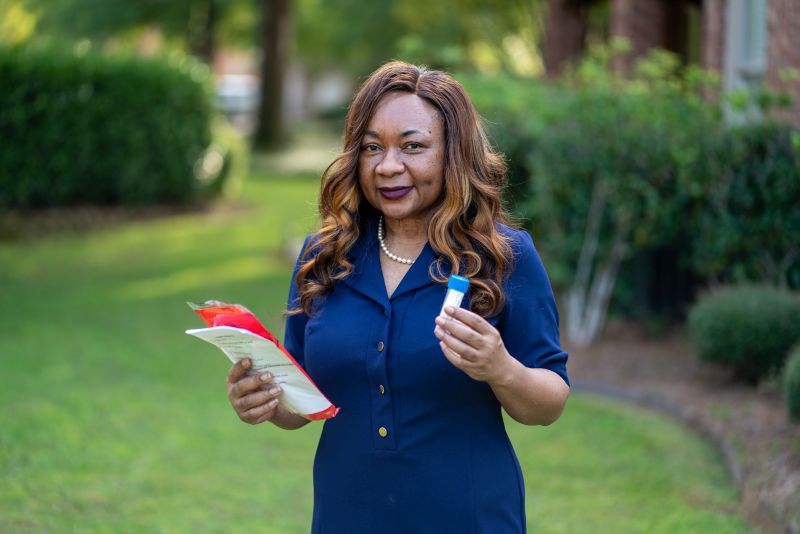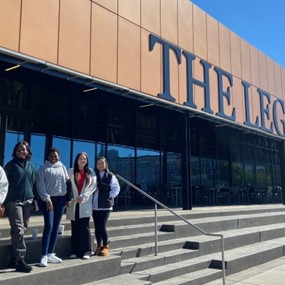Environmental activist Catherine Coleman Flowers speaks at Auburn

The Department of Sociology, Anthropology and Social Work and the Office of Sustainability recently hosted the annual Social Justice Lecture Series with keynote speaker Catherine Coleman Flowers. With more than 175 guests in attendance, the lecture was Flowers’ first in-person lecture at a university in Alabama.
Catherine Coleman Flowers is an internationally recognized environmental activist, MacArthur “genius” grant recipient and author. She has dedicated her life’s work to advocating for environmental justice, primarily equal access to clean water and functional sanitation for communities across the United States. Founder of the Center for Rural Enterprise and Environmental Justice (CREEJ), Flowers has spent her career promoting equal access to clean water, air, sanitation and soil to reduce health and economic disparities in marginalized, rural communities.
“We were honored to host Catherine Coleman Flowers as the featured speaker for the Sociology, Anthropology & Social Work 2023 Social Justice Lecture Series event. Ms. Flowers made the case that environmental justice is not only a social justice issue, but a human rights issue,” said Carole Zugazaga, chair of the Department of Sociology, Anthropology and Social Work. “She emphasized that when working to address issues associated with inequities and marginalized communities, it’s important to include the wisdom of those who are impacted in the search for solutions. She encouraged all attendees to speak up when we see injustices – that we never know where it might lead, no matter where we start.”
In her talk, Flowers discussed her 2020 book, “Waste: One Woman’s Fight Against America’s Dirty Secret,” and shared her inspiring story of advocacy, from childhood to environmental justice champion. Growing up in Lowndes County, Alabama, it was there where Flowers was first exposed to activism through her parents advocacy for civil rights. Upon her return to Lowndes County years later, she discovered dire sanitation issues and their effect on the community. She spent many years researching and advocating for clean water access, which has brought national attention to wastewater inequality in the United States, particularly marginalized, rural communities.
“What Catherine Coleman Flowers teaches us is that when we have the courage to act, and the willingness to say 'yes' and step into opportunities as they present themselves, we can have an extraordinary impact in making the world a better place,” said Director of Sustainability Mike Kensler.
In addition to numerous awards, Flowers is the vice chair of the White House Environmental Justice Advisory Council and, most recently, was named to Time magazine’s 100 Most Influential People of 2023.
Tags: Sociology






